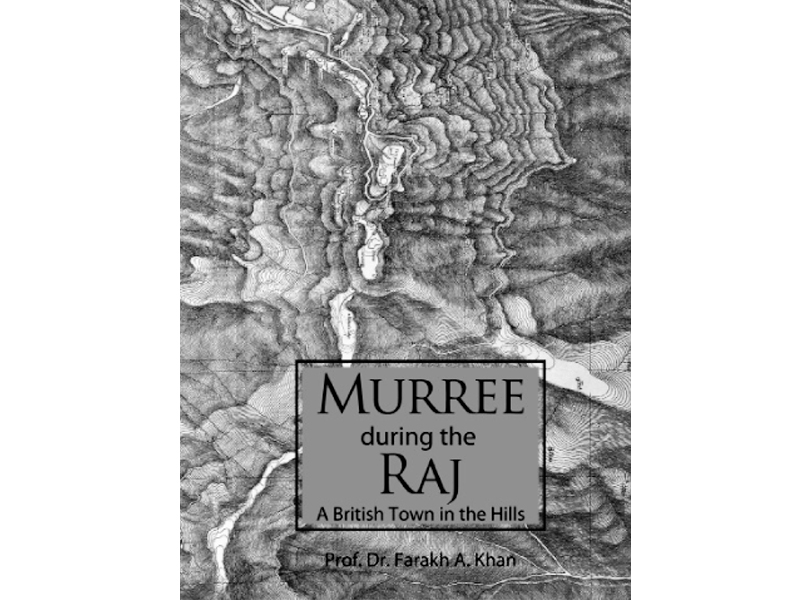
A book about Murree’s development as a summer retreat for the British was launched in a ceremony here at the Punjab Club on Sunday. Some 150 people attended the event, which also served as a tribute to Prof Farakh A Khan, the author of Murree during the Raj: A British town in the hills.
Speaking at the launch, Prof Khan, a leading urologist before retirement, said the book came about almost by accident. In the summer of 1999, he was in the family home in Murree with his three daughters, who were getting bored. So they decided to do a little study on a Gujjar settlement nearby. When Prof Khan set out to write it, he decided to add “just a paragraph” about Murree, to give context. That paragraph eventually turned into a whole book.

The work also owed a debt to his parents, Prof Khan said, who had taken him to Murree every summer as a child. With no television or radio, he spent much of his time outdoors, getting to know the town.
He said it was important that Pakistanis preserve their heritage, whether Islamic, Hindu or British. “Unfortunately, we have failed to do this,” he said. Prof Khan is also chairman of the Murree Museum, a project he proposed to the Punjab government a few years ago, and of the museum at King Edwards Medical University, where he got his medical degree.
The author was introduced by his cousin, former Test cricketer Majid Khan, who recalled their childhood days in Murree. He described the author as “curious and experimental”. His experiments included “snatching us and putting us in the deep end [of a pool] to see if we survived”.
Prof Khan was also a keen sportsman who represented Lahore and Sargodha in first class cricket (Sarfaraz Nawaz once told Wisden that he had learnt the art of reverse swing from Farakh Khan). Majid Khan recalled playing a game of hockey with him a day before a Test match. Pakistan’s then opener got a hockey stick in the face and a broken nose.
“I thought I would have to go to the hospital and pull out of the match. But the doc told me to sit on my knees and then snapped my nose back in place right there. I played the Test match,” he said.
‘Best book on Murree’
Political analyst Khaled Ahmed, also a cousin, said that his room at Government College looked out straight at Prof Farakh Khan’s room. “His light was always on. I could never keep up with him,” he said.
He said the author had always had a strong “ferreting instinct”. He was “more interested in mounds than buildings, for it is in mounds that you really go into archaeology”.
He said that the book was the best he had read about Murree. He described it as a holistic study of the town. It also shed light on the British Raj and what they were thinking in setting up the hill station.
The British, unable to take the scorching heat in the plains, would decamp to the hills over the summer.
The book also describes some of the famous visitors to the hill station, such as US President Theodore Roosevelt, and local landmarks like Murree Brewery and Lawrence College.
Published in The Express Tribune, November 12th, 2013.
COMMENTS (3)
Comments are moderated and generally will be posted if they are on-topic and not abusive.
For more information, please see our Comments FAQ





























1713853507-0/MalalaHilary-(2)1713853507-0-270x192.webp)








British Raj was not bad for the rich and powerful families. No wonder these privileged families still miss those days when they were awarded the titles and land. Nobody would give a true freedom fighter any tittles like Sir, monthly stipend or real estate. While some in Pakistan have been chasing bread rich powerful are still singing the greatness of British Raj and crown. What is wrong with mainstream Pakistani women and towns?
A first write up on the history of Murree! Its a big deal and a right step in honoring our heritage to build our shattered self esteem. Again one of our favorite cousins, following Imran Khan, has shown us the way to progress by enriching ourselves through intellect and not by feeding on hatred as the prevalent social norm, nowadays. We should pray that Pakistan once again would become a tolerant society where scholars like Dr. Farrukh can help us discover our lost pride and dreams of a better future.
A first write up on the history of Murree! Its a big deal and a right step in honoring our heritage to build our shattered self esteem. Again one of our favorites, following Imran Khan, has shown us the way to progress by enriching ourselves through intellect and not by feeding on hatred as the prevalent social norm, nowadays. We should pray that Pakistan once again would become a tolerant society where scholars like Dr. Farrukh can help us discover our lost pride and dreams of a better future.